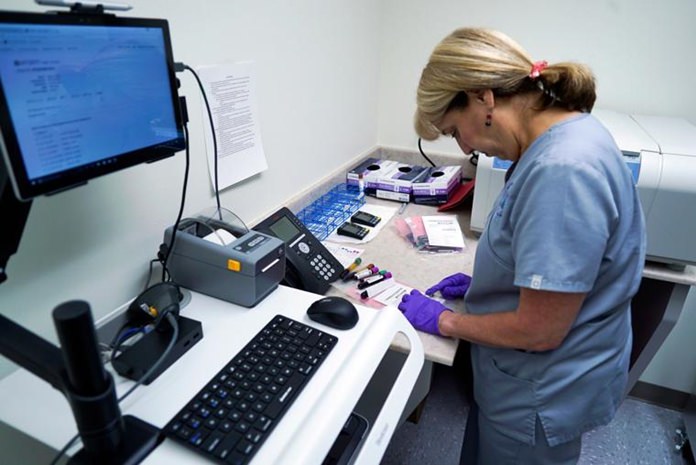
Washington (AP) —The U.S. government has opened a nationwide enrollment for an ambitious experiment: If they can build a large enough database comparing the genetics, lifestyles and environments of people from all walks of life, researchers hope to learn why some escape illness and others don’t, and better customize ways to prevent and treat disease.
“A national adventure that is going to transform medical care,” is how Dr. Francis Collins, director of the National Institutes of Health, describes his agency’s All of Us Research Program.
Congress has authorized $1.45 billion over 10 years for the project. It all hinges on whether enough people around the country will sign up, either online or through participating health centers.
There’s already interest: More than 25,000 people got early entry to the project over the past year through an invitation-only pilot test run by participating universities and health providers.
The project involves “precision medicine,” using traits that make us unique to forecast and treat disease. Learning enough to individualize care requires studying a massive number of participants: The healthy and not-so-healthy, young and old, rural and urban, blue-collar and white-collar — and people of all races and ethnicities. For now, participants must be at least 18. Next year, the study will open to children, too.
The first volunteers will share electronic health records and blood samples, and answer periodic questionnaires about their diet, sleep, environmental exposures and other lifestyle factors. They might wear fitness trackers and other sensors.
And later this year they’ll start undergoing genetic testing, initially to look for so-called “variants” in DNA that affect disease risk, similar to what some private companies now sell, Collins said. Fully mapping the genetic code is too pricey now for a million people, but that more comprehensive approach eventually will be used with some participants, too.
Among the first lessons Collins hopes to learn is about resilience: Why do some people stay healthy despite smoking or pollution or poor nutrition?
“We have no idea how those people escape those odds,” he said.
Unlike with most medical studies, participants can choose to see their own test results and share them with their physician long before the study reaches any big-picture conclusions. One result that might bring a quick benefit: Genetic variants can signal who is prone to side effects from more than 100 drugs, information that could be used to prescribe a safer drug if only their doctors knew, Collins added.
 |
 |





